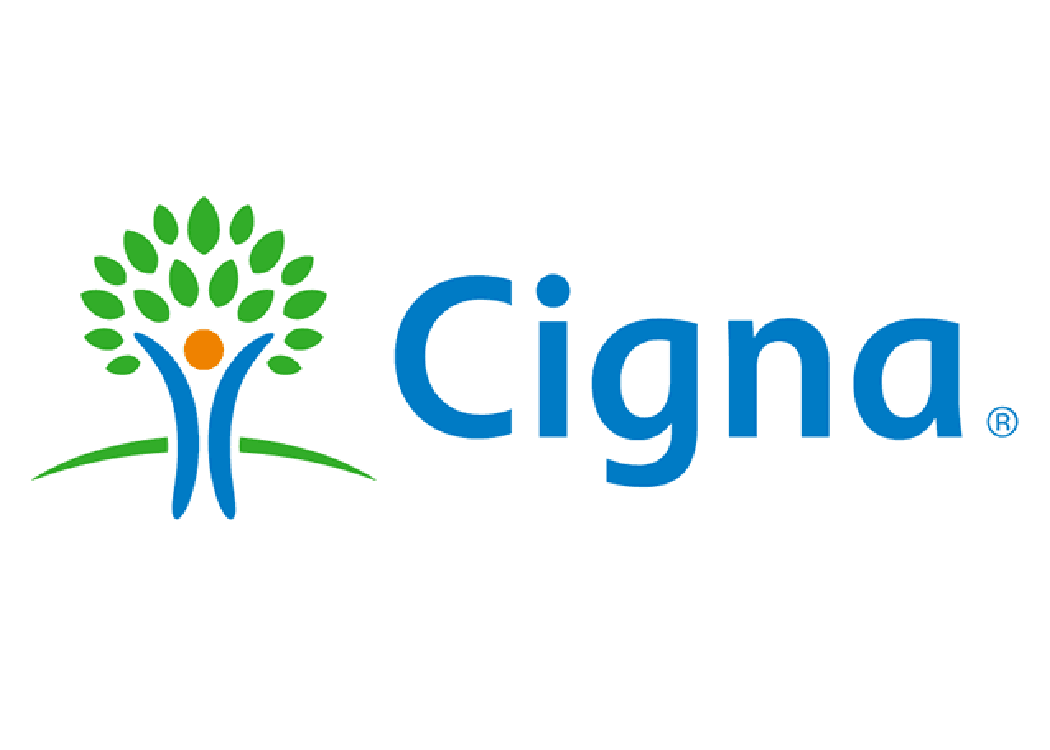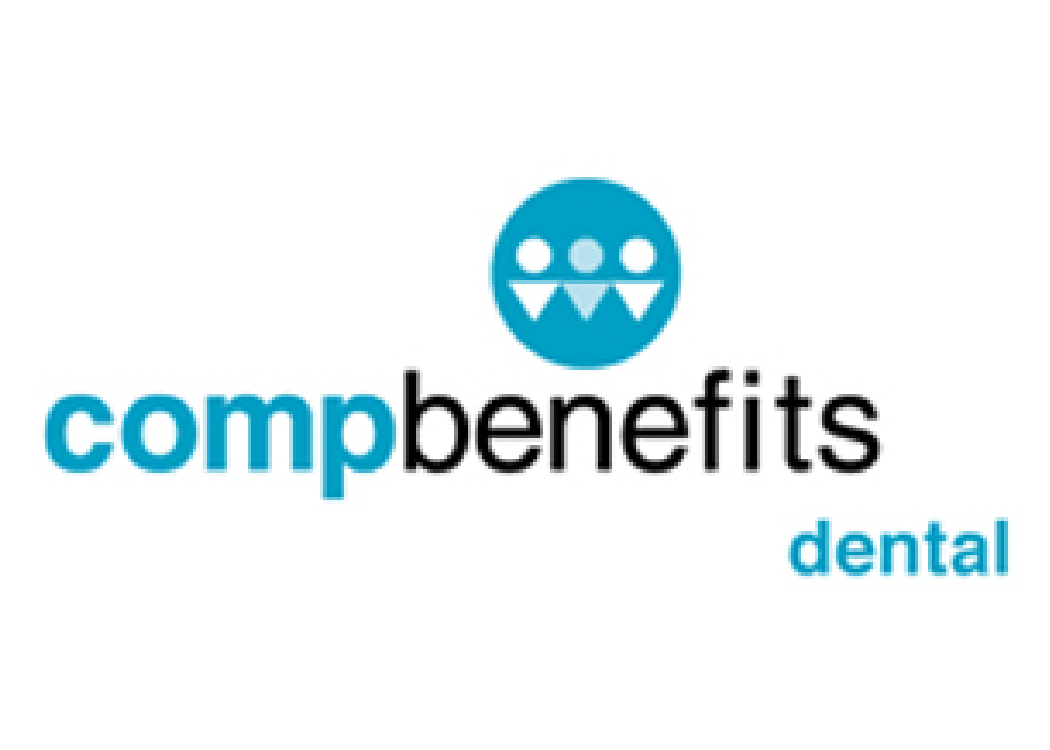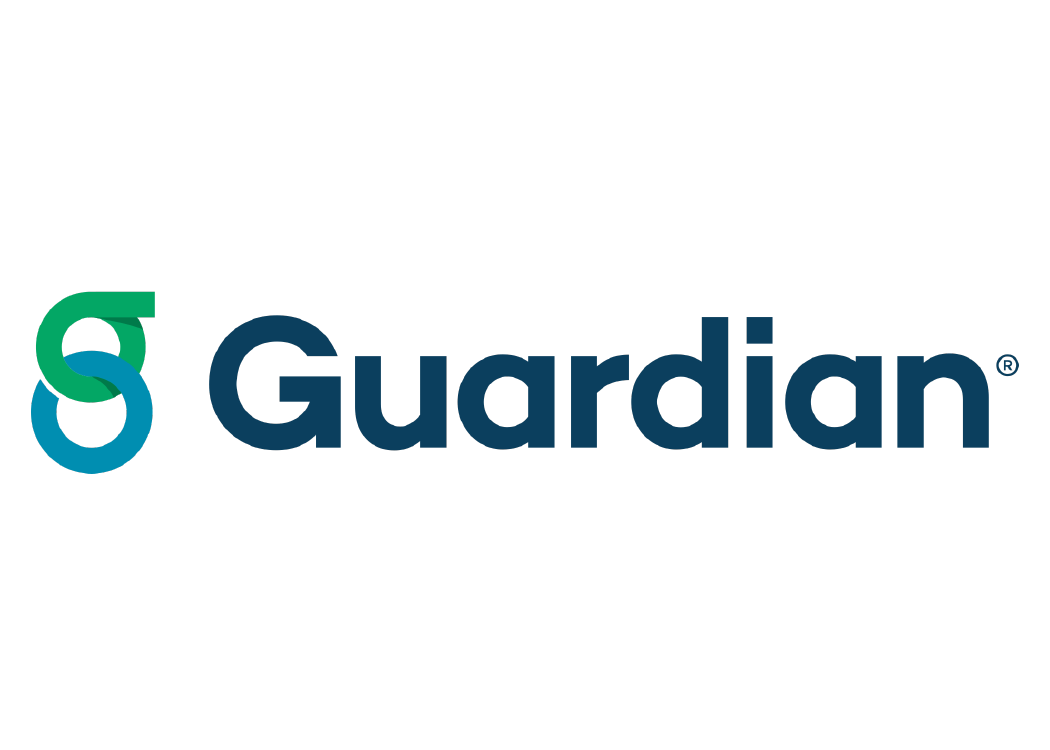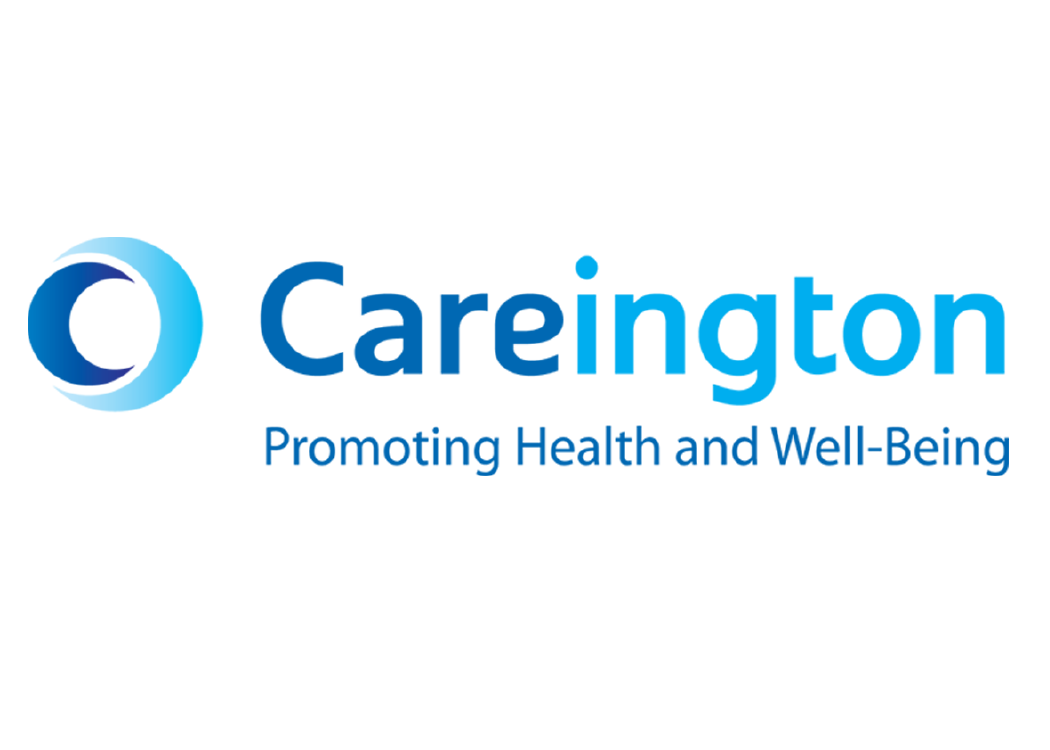Snoring Prevention in Aventura, Pembroke Pines, and Fort Lauderdale, FL
Quieter Nights, Better Sleep for Everyone, from The Dental Care Group
Snoring is more than just a nighttime nuisance. While occasional snoring affects nearly everyone at some point, chronic snoring can signal underlying health concerns and significantly impact your quality of life and relationships. If you or your partner struggles with persistent snoring that disrupts sleep, you don’t have to accept it as an unchangeable reality. The Dental Care Group offers effective snoring prevention solutions that can help you achieve quieter, more restful nights.
If you or a loved one is struggling with chronic snoring, don’t wait to seek professional care. Schedule your appointment today with our dentists in Aventura, Pembroke Pines, or Fort Lauderdaleby calling 305-935-2797(Aventura), 954-430-2300(Pembroke Pines), or 954-963-3706(Fort Lauderdale).
A Welcoming Environment for Every Patient
With over 50 years of experience serving South Florida families, our team has helped countless patients overcome chronic snoring and restore peaceful sleep for themselves and their loved ones. We understand that snoring affects not just the person who snores, but everyone in the household, and we’re here to provide compassionate, comprehensive care that addresses the root causes of your snoring.
Our patient-centric approach means we take the time to listen to your concerns, explain your treatment options in detail, and work with you to develop a personalized care plan that fits your needs and goals. Whether you’re seeking treatment for yourself or a family member, you’ll find a stress-free environment where your comfort and satisfaction are our top priorities.
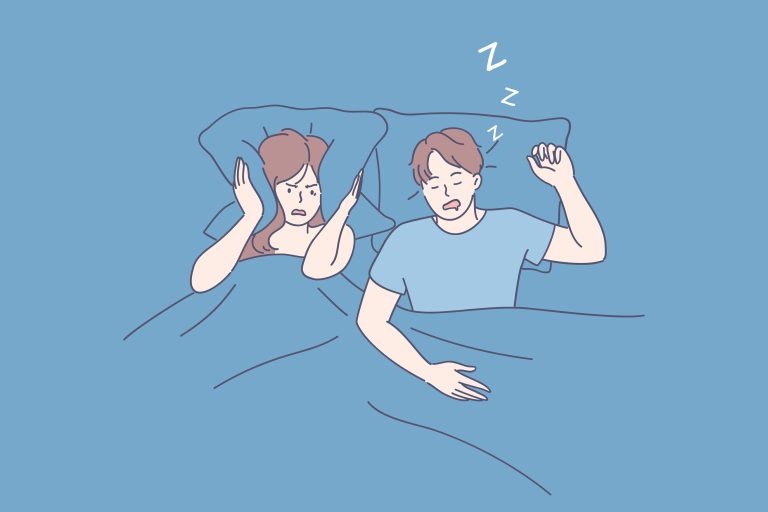
Snoring: More Than Just a Nuisance
It’s estimated that more than 80 million people in North America snore while sleeping. As many as 90 million Americans reported snoring at some point in their lives, according to the American Medical Association.
Snoring occurs when airflow through the mouth and nose becomes partially obstructed during sleep. As you sleep, muscles in your throat, tongue, and soft palate relax. When these soft tissues relax too much, they partially block your airway. Air passing through creates vibrations that produce the snoring sound.
The impact extends beyond the person who snores. Bed partners often experience significant sleep disruption, leading to separate bedrooms and relationship tension. Even when snoring isn’t related to sleep apnea, it can fragment sleep patterns, causing daytime sleepiness and difficulty concentrating.
What Causes People to Snore?
Multiple factors contribute to why people snore. Understanding these causes is the first step toward finding an effective solution to stop snoring.
Anatomical Factors
Your physical anatomy plays a significant role in whether you snore. Certain structural characteristics increase snoring risk:
- A low, thick soft palate that narrows the airway
- Enlarged tonsils or adenoids that block airflow
- A long uvula that obstructs the upper airway
- A large tongue that falls backward during sleep
- A deviated septum or nasal polyps that restrict the nasal passages
Excess Weight and Obesity
Carrying excess weight is one of the most significant risk factors. Fat deposits around the neck and throat put pressure on the airway. Even modest weight gain can trigger snoring in previously quiet sleepers. Losing weight often provides significant relief.
Age-Related Changes
As we age, muscle tone in the throat naturally decreases. This loss makes the throat more likely to collapse during sleep. While people snore at all ages, it becomes more common and severe in middle age and beyond.
Nasal Congestion and Sinus Problems
Chronic nasal congestion forces you to breathe through your mouth during sleep. This increases the likelihood of snoring. Common causes include:
- Seasonal allergies
- Chronic sinusitis
- Upper respiratory infections
- Structural problems, like a deviated septum
- A stuffy nose from colds or flu
Treatment to reduce nasal congestion can help you stop snoring. Simple solutions like nasal strips can keep nasal passages open and improve airflow.
Alcohol and Sedative Use
Consuming alcohol or sedatives before bed worsens snoring. These substances relax throat muscles excessively. This makes the airway more prone to collapse. Even moderate alcohol consumption several hours before bed can trigger snoring.
Sleep Position Matters
Your sleep position dramatically impacts snoring. Sleeping on your back allows gravity to pull the tongue and soft tissues backward. This narrows the airway. Many who snore loudly on their backs find that sleeping on their side significantly reduces snoring.
Smoking and Irritation
Smoking irritates membranes in the nose and throat. This causes inflammation and swelling that restricts airflow. People who quit smoking often see improvement in their snoring.
When Snoring Indicates Sleep Apnea
Sometimes snoring signals obstructive sleep apnea(OSA), a serious sleep disorder. Sleep apnea occurs when the airway becomes completely blocked repeatedly during sleep, causing you to stop breathing temporarily.
Obstructive Sleep Apnea Symptoms
Watch for these obstructive sleep apnea symptoms:
- Loud, chronic snoring most nights
- Pauses in breathing during sleep (observed by bed partner)
- Gasping or choking sounds
- Excessive daytime sleepiness despite enough sleep
- Morning headaches
- Difficulty concentrating or memory problems
- Irritability or mood changes
- Waking with a dry mouth or sore throat
These symptoms indicate your doctor may need to order a sleep study. Sleep apnea is a serious condition requiring professional diagnosis and treatment.
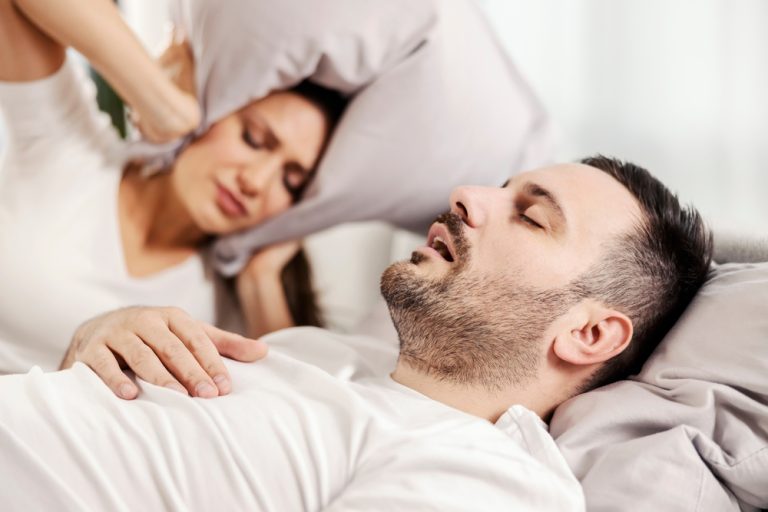
Signs Your Snoring Requires Medical Attention
While occasional light snoring is harmless, certain warning signs indicate you need professional evaluation:
- Loud snoring that occurs most nights
- Breathing pauses observed by your bed partner
- Gasping or choking during sleep
- Extreme daytime sleepiness
- Morning headaches upon waking
- Memory problems or difficulty concentrating
- Mood changes or irritability
- Dry mouth or sore throat when you wake
These may indicate sleep disorders like obstructive sleep apnea that require immediate attention.
How We Evaluate Your Snoring at The Dental Care Group
At The Dental Care Group, we take a comprehensive approach to help you stop snoring. During your consultation, we conduct a thorough physical examination of your mouth, throat, and airway. We identify anatomical factors contributing to your snoring.
We review your medical history, lifestyle factors, and sleep habits. We ask detailed questions about your snoring patterns, including frequency, volume, and what makes it better or worse.
When Sleep Studies Are Needed
If symptoms suggest sleep apnea or other sleep disorders, we refer you to a sleep specialist. They may recommend a sleep study at a sleep lab or sleep center. During the sleep study, specialists monitor:
- Breathing patterns and pauses
- Blood oxygen levels
- Brain waves and sleep stages
- Heart rate and rhythm
- Body position during sleep
- Muscle activity
The sleep study results determine if you have mild sleep apnea, moderate, or severe obstructive sleep apnea. This guides your treatment plan.
Mandibular Advancement Devices (MADs)
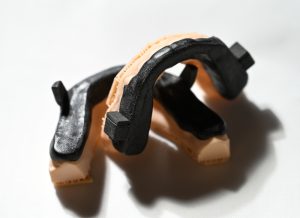 For many patients with chronic snoring, a custom-fitted mandibular advancement deviceoffers an effective, comfortable solution. A MAD is a specially designed oral appliance, similar to a mouthguard or sports guard, that you wear during sleep. The device works by gently repositioning your lower jaw (mandible) slightly forward, which has several beneficial effects on your airway.
For many patients with chronic snoring, a custom-fitted mandibular advancement deviceoffers an effective, comfortable solution. A MAD is a specially designed oral appliance, similar to a mouthguard or sports guard, that you wear during sleep. The device works by gently repositioning your lower jaw (mandible) slightly forward, which has several beneficial effects on your airway.
By advancing the lower jaw forward, the MAD increases the space in your airway, making it less likely to collapse during sleep. The device also prevents your tongue from falling backward into your throat, which is a common cause of snoring. Some advanced MAD designs include features that stabilize the tongue position and support the soft palate, further improving airway patency.
Benefits of Oral Appliances
Oral appliances like MADs offer numerous advantages:
- Custom-Fitted Comfort:Designed for your mouth’s unique shape
- Quiet and Discreet:Creates no noise during use
- Portable and Convenient:Easy to travel with, requires no electricity
- Effective with Nasal Congestion:Works even if you have allergies
- Clinically Proven:Can significantly reduce snoring or eliminate snoring in most patients
- Versatile Treatment:Effective for snoring and mild sleep apnea
Most patients find oral appliances comfortable after a brief adjustment period. Many report they quickly forget they’re wearing the device while sleeping.
The Custom Fitting Process
Creating your custom mandibular advancement device involves three simple steps:
- Initial Appointment:We take precise impressions of your teeth and bite to fabricate a device that fits your mouth perfectly
- Fitting Appointment:Once your MAD is ready, we carefully adjust the device to ensure proper jaw positioning and comfort, and provide detailed instructions on insertion, removal, and care
- Follow-Up Care:We schedule periodic check-ins to assess effectiveness, make necessary adjustments, and monitor for any side effects
Most patients experience some minor jaw stiffness during the first few mornings, but this temporary sensation typically resolves within a week or two as your muscles adjust to the new position.
Lifestyle Modifications for Snoring Prevention
In addition to oral appliance therapy, certain lifestyle changes can help reduce snoring and may be used alone for mild cases or in combination with a MAD for optimal results.
- Weight Management:If you’re overweight, losing even a modest amount of weight can significantly reduce snoring. Weight loss decreases fatty tissue in the back of the throat and reduces pressure on the airway.
- Sleep Position Changes:Sleeping on your side instead of your back can dramatically reduce snoring for many people. Special pillows designed to encourage side-sleeping or wearable devices that vibrate when you roll onto your back can help you maintain a side-sleeping position throughout the night.
- Avoid Alcohol and Sedatives Before Bed:Limiting or avoiding alcohol consumption for at least three to four hours before bedtime can reduce snoring. If you take sedative medications, talk to your doctor about whether the timing or type of medication might be contributing to your snoring.
- Treat Nasal Congestion:If allergies or chronic sinus problems contribute to your snoring, treating these conditions can provide significant relief. This might include using nasal saline rinses, taking allergy medications, using nasal strips that open the nasal passages, or treating underlying sinus infections.
- Maintain Good Sleep Hygiene:Establishing healthy sleep habits can improve overall sleep quality and may reduce snoring. This includes maintaining a consistent sleep schedule, creating a comfortable sleep environment with appropriate temperature and humidity, avoiding large meals close to bedtime, and establishing a relaxing bedtime routine.
- Stay Hydrated:Dehydration can cause secretions in your nose and soft palate to become stickier, which can worsen snoring. Drinking plenty of water throughout the day can help keep these secretions more fluid.
- Quit Smoking:If you smoke, quitting is one of the best things you can do for your overall health and your snoring. Smoking cessation often leads to reduced inflammation in the airway and decreased snoring.
Throat and Mouth Exercises
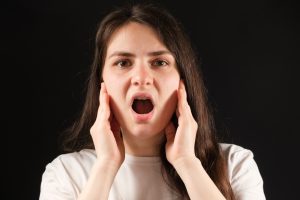 Research suggests that exercises targeting the muscles of the mouth, tongue, and throatmay help reduce snoring by strengthening these muscles and reducing their tendency to collapse during sleep. A randomized clinical trial published in Chestjournalfound that patients who performed daily oropharyngeal exercises for three months experienced significant reductions in objectively measured snoring compared to a control group.
Research suggests that exercises targeting the muscles of the mouth, tongue, and throatmay help reduce snoring by strengthening these muscles and reducing their tendency to collapse during sleep. A randomized clinical trial published in Chestjournalfound that patients who performed daily oropharyngeal exercises for three months experienced significant reductions in objectively measured snoring compared to a control group.
While these exercises shouldn’t replace proven treatments like oral appliances or CPAP therapy for sleep apnea, they may provide additional benefit when used as part of a comprehensive approach to snoring prevention. The exercises are particularly appealing because they can be performed at home without special equipment and have no side effects.
When to Consider Additional Treatment Options
For some patients, snoring may be a symptom of obstructive sleep apnea, which requires more comprehensive treatment. If your evaluation suggests sleep apnea, treatment options may include Continuous Positive Airway Pressure (CPAP) therapy, which delivers pressurized air through a mask to keep your airway open, more advanced oral appliances specifically designed for sleep apnea treatment, or, in some cases, surgical interventions to address anatomical obstructions.
Our team will work closely with sleep specialists and other healthcare providers to ensure you receive the most appropriate treatment for your specific condition.
Frequently Asked Questions
Is all snoring the same?
No, snoring can vary significantly in its characteristics and underlying causes. Some people experience only occasional, light snoring, while others have loud, chronic snoring every night. The pattern, volume, and associated symptoms of snoring can provide important clues about whether it’s a benign issue or a sign of a more serious condition like sleep apnea.
Can children snore?
Yes, children can snore, and chronic snoring in children should never be ignored. Common causes of pediatric snoring include enlarged tonsils and adenoids, allergies, obesity, or anatomical issues. If your child snores regularly, especially if accompanied by restless sleep, mouth breathing, or daytime fatigue, schedule an evaluation with a healthcare provider.
How long does it take to adjust to a mandibular advancement device?
Most patients adjust to wearing a MAD within one to two weeks. You may experience some mild jaw soreness, tooth sensitivity, or excessive salivation during the first few nights, but these side effects typically resolve quickly. We’ll work with you to ensure proper fit and make any necessary adjustments to maximize your comfort.
Will a mandibular advancement device damage my teeth or jaw?
When properly fitted and monitored by a dental professional, MADs are safe and should not cause damage to your teeth or jaw. We use high-quality materials and precise fitting techniques to ensure your device is both effective and safe. Regular follow-up appointments allow us to monitor for any potential issues and make adjustments as needed.
Can I use an over-the-counter snoring device instead of a custom MAD?
While over-the-counter snoring devices are available, custom-fitted mandibular advancement devices from your dentist offer several advantages. Custom devices are specifically designed for your unique mouth anatomy, providing a better fit, greater comfort, and improved effectiveness. They’re also made from higher-quality materials and can be adjusted precisely to achieve optimal results. Additionally, professional fitting ensures that the device positions your jaw correctly without causing unnecessary strain.
Will my insurance cover snoring treatment?
Insurance coverage for snoring treatment varies depending on your specific plan and whether your snoring is associated with sleep apnea. Many insurance plans cover oral appliances for diagnosed sleep apnea, and some may cover them for primary snoring as well. Our team can help you understand your insurance benefits and work with your insurance company to maximize your coverage.
Start Your Journey to Quieter, More Restful Sleep
Don’t let chronic snoring continue to disrupt your sleep and relationships. Effective solutions are available that can help you and your loved ones enjoy quieter, more restful nights. Taking the first step toward addressing your snoring can make a significant difference in your quality of life, energy levels, and overall health.
Contact our Aventura, Pembroke Pines, or Fort Lauderdale dental teamtoday at 305-935-2797(Aventura), 954-430-2300(Pembroke Pines), or 954-963-3706(Fort Lauderdale) to schedule your consultation. Together, we can identify the underlying causes of your snoring and develop a personalized treatment plan that works for you.
With over 50 years of experience and state-of-the-art technology, The Dental Care Group is your trusted partner in achieving the peaceful, restorative sleep you deserve. We’re conveniently open Saturdays at all three locations, making it easier to fit your appointment into your busy schedule.
Locations Performed in
What they say
Yesenia Ruiz
Maria Perez
Lois Cardona
Ellie Moldavsky
Andie Hall
Richard Steward
Richada Wright
Payment Information
CASH

CHECK

CREDIT CARD

Financing

The cost of your treatment will vary depending on your individual needs and treatment plan. We will discuss with you the cost of your treatment and each of your available payment options before you begin, so that you can make the best choice for you.
We offer:
- Easy Payment Options
- Affordable Savings Plans
- Web Specials
- Dental Care Group Discount program






